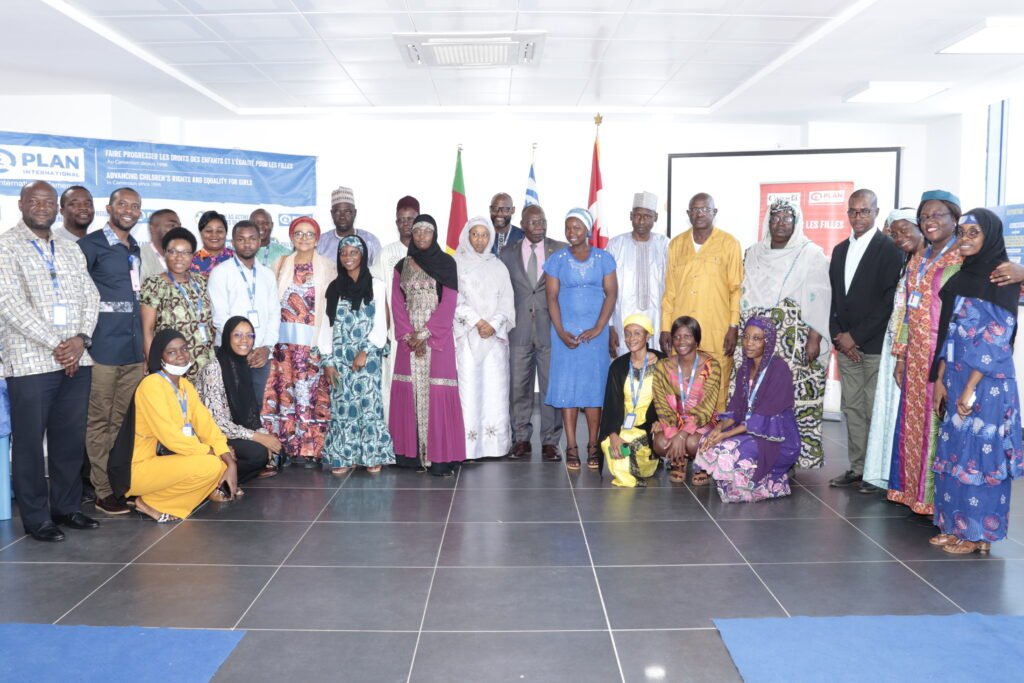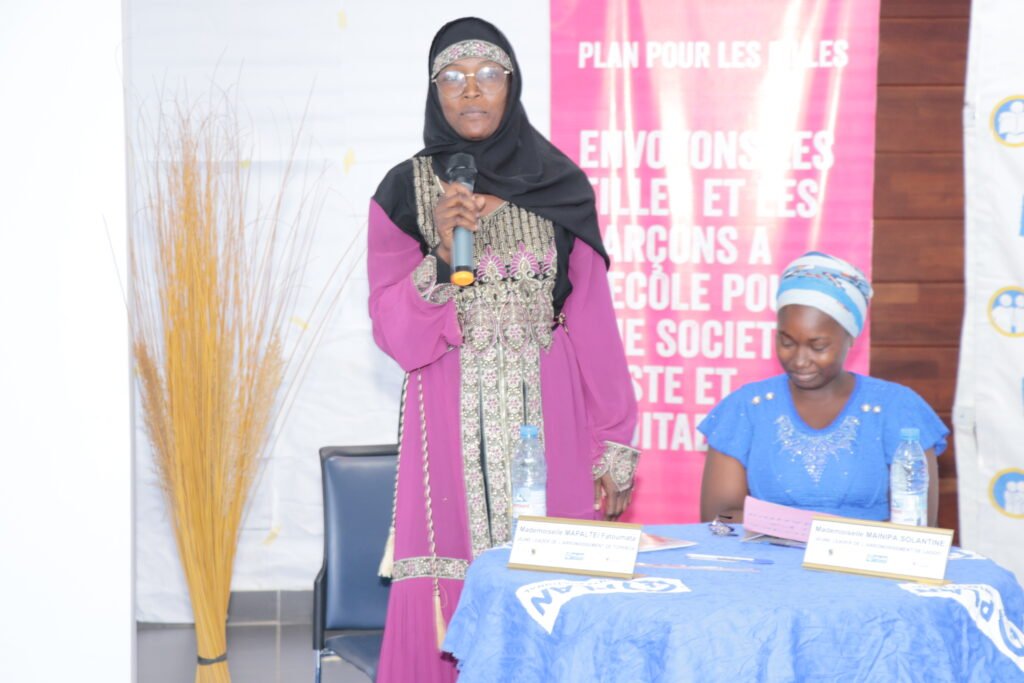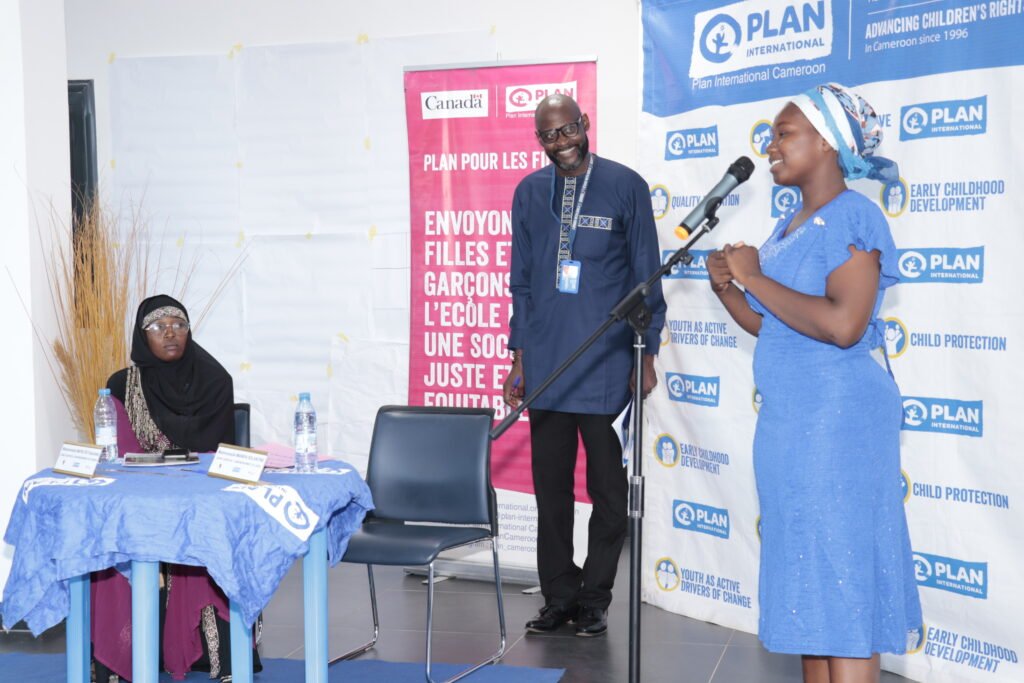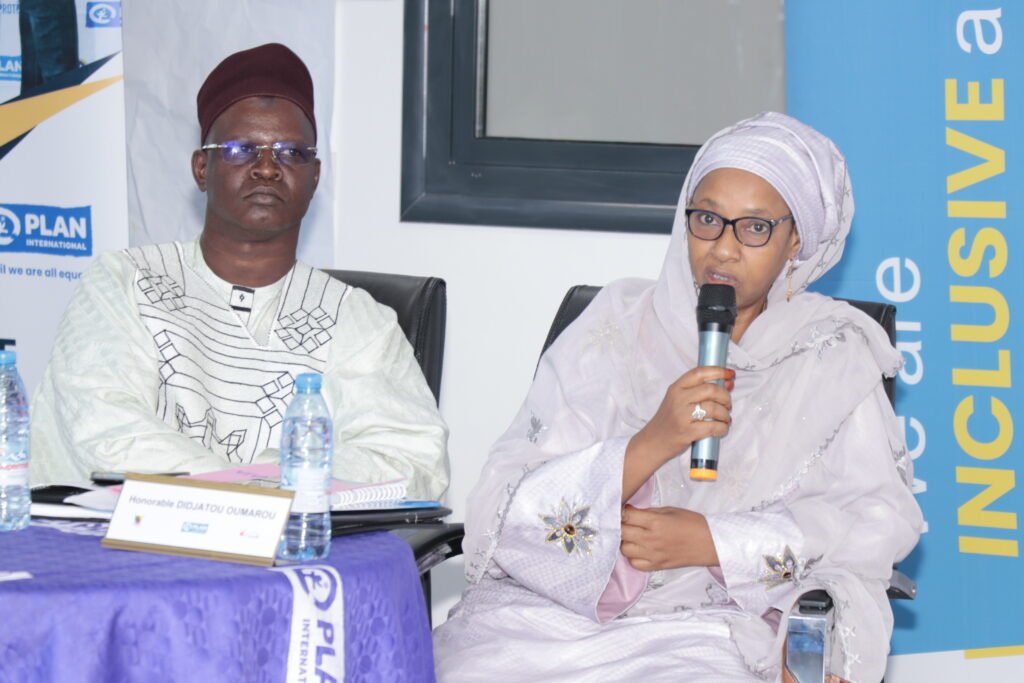Within the framework of the Plan for Girls Project, an advocacy session with parliamentarians was organized on March 7, 2024, in Yaounde, Cameroon.

Urgent Actions Needed
Fatoumata Mapaltei, a young girl from the locality of Tcheboa in the Benoué division of the North region, got entangled in a situation where her birth certificate was highly required. While trying to have the precious document, she discovered that thousands of children were deprived of birth certificates in the North region.
In her advocacy memo, she disclosed that over 12.000 children could not sit for the 2023 official examinations in the North region due to lack of birth certificates.

On her part, Solantine Mainipa, 17, who comes from the Lagdo subdivision said, that today she is filled with tears and remorse because her best friend got pregnant at an early age and was later unable to pursue her studies, and most importantly achieve her dreams.
She believes, her young female friend and other girls in her school have been trapped in this situation because they were not well counseled.

Miss Mainipa pledged the creation of safe spaces and centers in schools, as a move to address the challenges of comprehensive sexual education(CSE), and to help adolescents and young girls who are victims of several abuses to report on their cases.
The young natives of Tcheboa and Lagdo subdivisions were speaking on Thursday, March 7, 2024, in Yaoundé during an advocacy session with parliamentarians.
As two beneficiaries of the Plan for Girls project implemented by Plan International Cameroon in the North region, they volunteered to be spokespersons of other adolescents and youths for a positive change.
The said advocacy session, gathered six senators from the North region, authorities, the Representative of the Canadian High Commission, youth leaders, champions, and the staff of Plan International Cameroon.
Parliamentarians onboard
The session which was mainly dedicated to advocacy brought together some six senators from the region of concern.
These Senators who represent the Upper House of Parliament in Cameroon were convened to be informed of the social ills plaguing the well-being of their populations notably adolescents and youths, who constitute a major force in the development of the country.
The Senators who praised the courage and engagement of the two young girls also acknowledged the fact that they are aware of such issues and have set the pace with some local authorities to remediate the situation, especially that of birth certificates which causes a lot of grievances.

Senator Pierrette Hayatou said Plan International Cameroon should issue a memo stating some key interventions where they need to act.
At the end of the session, Senator Oumarou Vaindang vowed to lead the young girls in their advocacy move.
“We will first thank Plan International for this initiative. And we appreciate the fact that our children left our native North region to meet us in Yaounde to come and pose their daily worries. I think as elites and parliamentarians, we have to contribute to the well-being of our young girls in this part of the country. We all know the problems they brought up, these are serious issues that affect the majority of our population. This advocacy should not stay in our coffers, we have to accompany these young girls, so that, they can move out of these precarious situations.” He said.
Senator Didjatou Oumarou, went further to reiterate the support of parliamentarians in this laudable initiative and said it will be done progressively.

She added: “We are glad to have been associated with this project of Plan International and we have heard, if I have to say so, the different grievances made by our young girls from the North region. Our approach here is to help them, as we commit to accompany them in their advocacy, to have the results expected.”
Plan for Girls Records Strides
Speaking to media practitioners after the session, Edith Tambe epse Owona, Program Manager of the Plan for Girls project praised the progress made so far by the project and its level of implementation in the North region.

She said: “We are happy with the environment which is becoming much more safe for adolescents. However, much has still to be done, in the sense that, service providers who are intervening in the different domains of the project have been trained, and made to understand the delicate stage of adolescence and the beautiful potential they all have. Henceforth, in their service delivery, and because of the capacity-building sessions they had, now they are more conscious of the fact that they need to make those services adolescent-friendly, and protective. They need to indeed be very conscious when they are dealing with adolescents. We will also celebrate the collaboration with key stakeholders like civil society organizations, mayors, and local authorities…”
As concerns the perspectives, with regards to the numerous strides recorded by the project that entered year six, Edith Tambe epse Owona outlined the fact that Plan International Cameroon has set in place innovative measures to push forward the project.
“We are marching up to the seventh year which is characterized by a lot of sustainability and one of the key successes regarding that, is the putting in place of a transition committee composed of different stakeholders, and Plan International Cameroon is taking the backstage. They are the ones to move on with key interventions and they commit themselves to say in which domain they will work on.” She narrated.
About Plan for Girls Project
Since 2018, this project supported by the Canadian High Commission has helped to empower adolescent girls in Benin and Cameroon. Through this project, youths have access to improved, adolescent-friendly services in the areas of education, sexual and reproductive health and rights, and economic empowerment by creating an integrated package of core, community-level activities for adolescents.
The project uses an approach that puts girls at the center of its actions, working in collaboration with parents, community leaders, and governments, to advance gender equality and empower adolescent girls. It also addresses persistent challenges to girls’ rights and well-being, including discriminating social practices.
Elise Kenimbeni



